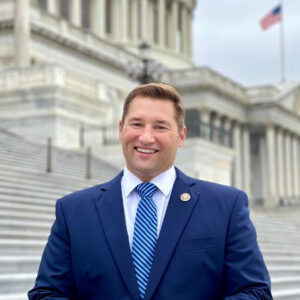
Rep. Guy Reschenthaler
To help reduce cold case backlogs around the country, U.S. Rep. Guy Reschenthaler (R-PA) recently sponsored legislation that would permit federal grant funds to be used to identify unidentified human remains even if the manner of death isn’t ruled a homicide.
“Across the United States, investigators lack the critical resources to solve the cases of tens of thousands of unidentified human remains,” Rep. Reschenthaler said.
The Cold Case Modernization Act, H.R. 6688, which Rep. Reschenthaler introduced on Dec. 7, would expand the criteria for U.S. Department of Justice (DOJ) grants used to ID such remains through forensic genetic genealogy testing, which is used by local, state, and federal law enforcement agencies to help reconnect missing and unidentified persons with their families, according to a bill summary provided by the lawmaker’s staff.
Currently, DOJ interim policy for “Forensic Genetic Genealogical DNA Analysis and Searching” dictates that DOJ funds be used for deceased persons who are declared homicide victims, the summary says.
If enacted, H.R. 6688 would expand the funding criteria to cover deceased persons for which a manner of death is not determined or for which manner of death is ruled to be a non-homicide, states the summary.
“The Cold Case Modernization Act puts these deceased Americans and their grieving families first, using state-of-the-art DNA technology to uncover answers and find the truth,” said Rep. Reschenthaler.
H.R. 6688 is under consideration by the U.S. House Judiciary Committee.



